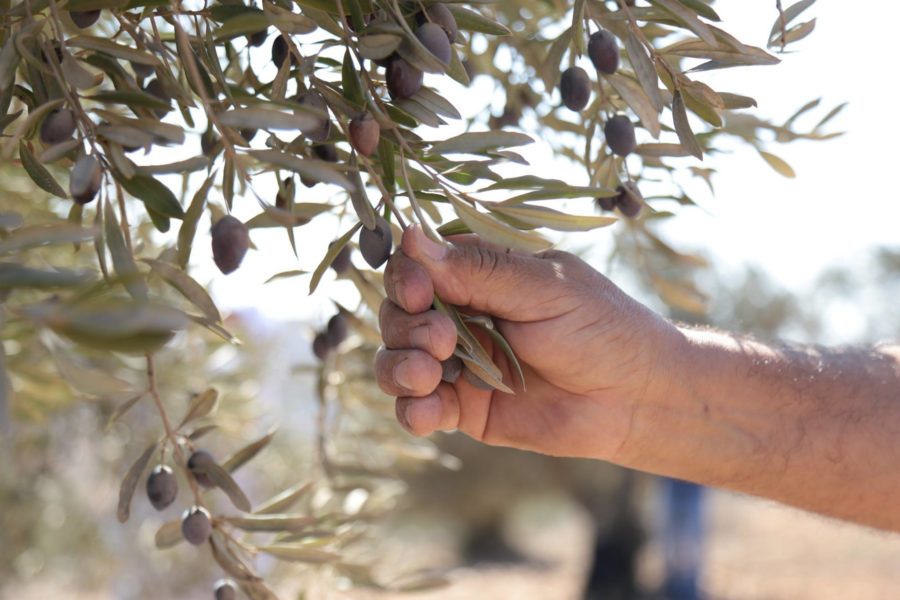The olive harvest season in the Occupied Palestinian Territories is a thoroughly enjoyable experience. Families get up early in the morning and journey to their land in the mountains and fields in order to pick those small green or black olives. They work under the hot sun for hours, have a traditional Palestinian meal and drink sweet tea brewed over a fire, then go back to work. When they get home they enjoy tasty Turkish delights and biscuits (Raha Wa Biskot) and then take their olives to be pressed. This Palestinian tradition has been alive and well for decades and symbolises Palestinian national identity.
Tragically it is becoming more and more difficult to maintain this tradition in the OPTs, especially in Area C of the West Bank. As illegal settlement expansion continues and the separation barrier is built, more and more Palestinian communities are cut off from their land. In 2014 OCHA estimated that 30% of Palestinian olive trees are behind Israeli security fences in Area C. Furthermore, settler violence, movement & access restrictions, and lack of water resources make it even more difficult for Palestinians.
Olive trees are immensely important for the Palestinian economy. Nearly half of all cultivated land in the OPTs is planted with over eight million olive trees that generate over 25% of the Palestinian agricultural income. Additionally over 100,000 Palestinian families depend on the annual olive harvest for their livelihoods. So when some Palestinians can’t harvest their olives, the Palestinian economy loses between $30m and $45m annually.
Which is why for the third year in a row, the British Consulate General in Jerusalem made the decision to support Palestinian communities affected by Israeli settlements and settler violence. The initiative, a joint partnership with the PA Commission against the Wall and Settlements, has provided £20,000 of olive harvesting equipment – including ladders, olive collection sheets, olive harvesting combs, saws and tree clippers – to support over 300 Palestinian families in 36 communities across the West Bank.
As part of the campaign, British Consulate General staff, representatives from the PA Commission and volunteers joined these farmers to pick olives and to provide a supportive presence in Palestinian communities throughout the West Bank and East Jerusalem, everywhere from Tel Rumida in Hebron to Al-Yanoun in Nablus and Aneen in Jenin. I’m proud to have been able to help support these Palestinians during these critical times.
While visiting various Palestinian communities over the last month, I was shocked to see the effects settler violence had on the village of Al-Yanoun and was upset by the amount of land Palestinians from Aneen had lost as a result of the separation barrier being built on their land. In Tel Rumeida, residents told us about the many difficulties they faced in the H2 area of Hebron.
The challenges Palestinians face as a result of the occupation are real and significant, but after talking to Palestinians from these communities, I was inspired by their steadfastness and resilience in the face of the many burdens of daily life here.
I hope that the initiative was helpful to Palestinian farmers. But I’m also aware that things need to improve for Palestinians, which can only happen when a future and independent Palestinian state is established, based on 1967 borders. In the meantime, the UK will continue to condemn settlement construction and settler violence. More importantly we will continue to support Palestinians in their pursuit for a state of their own, a state where Palestinians can freely enjoy the fruits of their labour, celebrate their traditions and create a bright future for themselves and their children.
For more pictures from our olive-harvest campaign, see this Facebook album.

